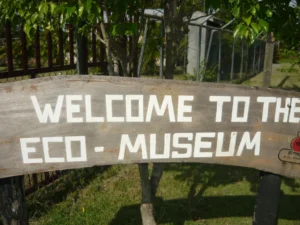Roots Tourism: Characteristics and Connections with Experiential Tourism
by Ignazio Caloggero

Reference page: Special “Tourism and Experiential Marketing”
Premise
2024 has been designated as 'the year of Italian roots', an initiative promoted by the Ministry of Foreign Affairs and supported by a specific PNRR project dedicated to 'roots tourism'. This article attempts to answer the following questions:
- What is Roots Tourism?
- What are the characteristics that identify this form of tourism?
- Is Roots Tourism a form of Experiential Tourism?
- Who are the main professional figures of Roots Tourism?
1. What is Roots Tourism
Il Roots Tourism, also known as origins, return, ancestral or genealogical tourism, offers a unique and meaningful experience. It is characterized mainly by migrants returning to their country of origin, often after having been away for many years, or by their descendants who wish to explore and learn about their family's homeland. The journey to one's native land often turns into a journey of personal discovery and connection with one's past and family history.
A possible definition could therefore be the following:
Roots Tourism: Roots Tourism is a personalized and meaningful form of travel that allows people to explore and connect with their cultural and genealogical heritage. This type of tourism involves visiting places linked to family history or cultural origins, offering a unique experience of personal discovery, reconnection with one's roots and deepening one's identity. By integrating elements of experiential tourism, Roots Tourism combines the emotional and personal aspect of travel with learning and immersion in local identities, offering a unique and meaningful experience that goes beyond traditional tourism.
The definition given highlights not only the aspect of personalized and meaningful travel but also the emotional and cultural connection that travelers establish with their origins and family history.
Furthermore, the inclusion of experiential tourism elements adds a further layer of richness to the experience, allowing travelers to fully immerse themselves in the cultures and traditions of the places visited. This approach ensures that the journey is not only a return to the roots, but also a journey of personal discovery, cultural enrichment and deepening of one's identity.
2. What are the characteristics that identify Roots Tourism
The tourist offer based on Roots Tourism presents distinctive characteristics that make it unique and engaging for travellers. Here are some of the main ones:
- Customization: The offer must be highly personalized to adapt to the traveler's family history, cultural origins and specific requests. This can include tailor-made itineraries involving places of family origin or historical sites important to the traveler's culture. This personalization goes beyond simply visiting places; it is a journey into the traveler's personal and family history.
- Connection with Cultural and Genealogical Roots: The focus is on the discovery or rediscovery of one's origins. Travelers can visit the birthplaces of their ancestors, the homes where they lived, or other sites that have a direct connection to their family and cultural heritage. It is essentially a question of creating what we could call "Cultural Immersive Experiences”: Activities should allow travelers to immerse themselves in the cultures and traditions of the places visited.
- Emotional and Learning Experiences: The journey is enriched by deep emotions and significant learning moments, through the discovery of family stories, local traditions, languages and arts. There is a strong emotional element given by reconnecting with the past.
- Interaction with Local Communities: There is strong involvement with local communities. Travelers have the opportunity to interact with local residents, participate in cultural and traditional events, and experience daily life as it was lived by their ancestors. This may include participation in local events, visits to museums and historic sites, workshops on traditional arts and crafts, and meetings with local communities.
- Genealogical Research and Historical Support: Genealogical research and collaboration with local history experts can significantly enrich the traveler's experience, allowing them to discover and connect with their past. This may include consulting archives, historical documents, or working with genealogists.
- Sustainability and Respect for Local Culture: The roots tourism approach emphasizes sustainability and respect for the environment and local culture. This includes supporting local economies and avoiding negative impacts on the communities visited.
- Storytelling and Narration: The art of storytelling can be a powerful tool for connecting travelers with their personal history and that of the places they visit. The use of engaging and meaningful narratives can increase the emotional and cultural impact of the trip.
- Integrated Approach: A holistic vision, typical of the concept of Cultural Heritage Interpretation, considers all aspects of local culture – both tangible and intangible – as parts of an interconnected whole. This approach recognizes that every cultural element, from language to landscapes, helps define the unique identity of a community.
In summary, Roots Tourism offers a deeply personal and meaningful travel experience, with a holistic approach to travel, allowing travelers to explore their cultural and genealogical heritage, establish an emotional connection with their past and learn in a in-depth information on their origins and local culture.
3. Relationships between Roots Tourism and Experiential Tourism
Roots Tourism is essentially a form of experiential tourism called "Roots Tourism Experience". In relation to experiential principles, Roots Tourism should be able to merge the distinctive elements of roots tourism with experiential principles to create trips with strong emotional impacts.
- Multisensory: Roots Tourism should include experiences that aim to stimulate all the senses, connecting guests to their roots through sounds, images, smells and flavors typical of the land of origin.
- Local Identities: Essential for roots tourism, Roots Tourism offers must emphasize and enhance the distinctive elements of the cultural and historical identity of the locations visited, allowing visitors to explore and connect with their origins.
- Uniqueness: Each experience offered must be unique and personalized, reflecting the visitor's individual history and roots, making each trip unique and unrepeatable.
- Human relations: Roots Tourism offers should include authentic encounters with the local community, encouraging the sharing of family and personal stories that enrich the traveler's experience.
- Direct Participation: Encourage the active participation of visitors in cultural and traditional activities, allowing them to “experience” rather than just observe the culture of their place of origin.
- Experiential Learning: Promote activities that allow visitors to actively learn about the history, culture, and traditions of their roots, through workshops, guided tours, and other interactive ways.
- Thematic Approach: Develop thematic itineraries that reflect different aspects of roots tourism, such as family history, genealogy or specific cultural traditions.
- Aesthetic Approach: Taking care of the aesthetic aspect of the itineraries and experiences offered, creating an atmosphere that reflects the authenticity and beauty of the places linked to the visitors' roots.
- Entertainment: Integrate entertainment elements that are respectful and reinforce the cultural and historical value of experiences, such as traditional music or theatrical performances linked to local stories.
- Immersion: Use immersive techniques to completely immerse visitors in their roots and the culture of the place, creating a multi-sensory context that connects them deeply to their origins.
4. The professional figures of Roots Tourism
Roots Tourism Manager (VI Level EQF)
The “Roots Tourism Manager” is a professional figure specialized in creating and managing travel experiences that allow travelers to explore and connect with their cultural and genealogical heritage. By integrating the principles of experiential tourism, this manager develops unique and personalized itineraries that offer a deep immersion in local identities, stimulating all the senses and actively involving visitors.
His skills range from historical and genealogical research to planning thematic itineraries that emphasize multisensory, active learning, and cultural entertainment. He promotes a holistic approach that combines aesthetics, uniqueness and human interaction, ensuring that every trip is not just a tour, but an enriching emotional and cultural adventure. In this way, the Roots Tourism Manager not only facilitates the discovery of travellers' origins but also the appreciation of different cultures, contributing to a more aware and meaningful tourism.
In essence, the Roots Tourism Manager is a professional who combines historical and cultural knowledge with tourism management skills to create personalized and deeply meaningful travel experiences that allow travelers to connect with their cultural origins and identities.
Roots Tourism Operator (V Level EQF)
The Roots Tourism Operator is a professional who specializes in organizing trips focused on the discovery of one's cultural and genealogical origins. This figure deals with:
- Personalized Itinerary Planning: Create tailor-made trips that allow customers to explore the areas of origin of their ancestors.
- Collaborate in Genealogical Research: Assist clients and other interested parties in researching their family roots, sometimes collaborating with local history experts and genealogists.
- Cultural and Historical Guide: Provide cultural and historical information and insights on the areas visited.
- Interaction with Local Communities: Facilitate interaction between travelers and local communities for an authentic cultural experience.
Comparing the roles of “Roots Tourism Manager” and “Roots Tourism Operator”, it is necessary to distinguish some key differences:
- Scope of Responsibility: The Radici Tourism Manager has a more strategic and high-level role, focused on the overall planning and management of tourist itineraries, while the Radici Tourism Operator focuses on the practical organization and execution of specific trips and activities.
- Focus on Offer Development: The Manager is more involved in the creation and innovation of the overall tourist offer, while the Operator is more dedicated to planning and creating personalized itineraries.
- Interaction with Interested Parties: Both collaborate with local communities and experts, but the Manager has a broader role in managing relationships with stakeholders and in the overall evaluation of the tourist offer.
In summary, the Radici Tourism Manager acts as a planner and strategist on a broader level, while the Operator focuses on the implementation and practical management of travel experiences.
Below are the schemes adopted by AIPTOC containing the tasks and skills required for these professional figures.
Ignazio Caloggero – President of AIPTOC – Italian Association of Tourism Professionals and Cultural Operators. Association included in the List of Professional Associations that issue the Certificate of quality and professional qualification of Services, of the Ministry of Business and Made in Italy (ex MISE) – info@aiptoc.it
Featuring Now
Featured training
Basic courses















